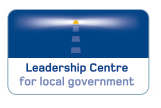Cllr Richard Kemp on Total Place
Posted on September 24th, 2009

Cllr Richard Kemp
Cllr Richard Kemp on Total Place
The thing that makes councillors and therefore their councils unique in their locality is that they have an electoral mandate. It may not be a massive mandate because not enough people vote, but it is invariably 100% more than the mandate for any other partner around the Local Strategic Partnership table.
The 2007 Local Government Act made councils the first amongst equals at that table. It recognised the roles not only of councillors centrally but also of front line councillors in their ward. It gave all other public sector partners a duty to cooperate with us but progress on enforcing that duty is painfully slow.
That is why Liberal Democrats should be, and in most cases are, backing the Total Place concept. These are very hard times and with the inevitable cuts in public spending we need to be smarter and sharper if we are to keep vital front line services going. Total Place is making us and our partners answer two key questions. How much do we spend in this area (either geographic or service) and if were starting again would we spend that much money in this way with these organisations? The fact that Total Place is being supported by the Government centrally because they realise that it is a major way forward is driving that cooperation from partners that we have been unable to achieve before.
Stormy times lie ahead in implementing what we learn from the Total Place work. Councils are ahead of the quangos in understanding the need to link up better because of the wide range of services we provide and because we are often the first port of call for residents even if we are not the servbuy real viagra online without prescriptionvice provider. No councillor turns people away if it’s a health authority; immigration authority; or DWP case. We try our best to be their advocate. Too often in our single service delivery partners, however, there is a reluctance to engage and a reluctance to think and act outside parameters which were set aeons ago.
Will Total Place work? It’s canada cheap viagra got to. It is not the answer to the financial crisis in the public sector but it is a major answer and the learningt hat we get in the process should enable us all to think not of our organisation or silo but about building up our services around the people and communities that really need them.
Richard Kemp is a councillor for Church ward in Liverpool and leader of the Local Government Association’s Liberal Democrat Group. 
Category: leadership




Well I hope Cllr Richard Kemp gets Liverpool to put in a bid. I prompted the first 1972 “Total Approach” and that initiated a five year programme of area management and policy studies in Liverpool (and other cities) – as described in the following article published in “Guardian Public”. But it was mismanaged by Whitehall. The initiative could have been rescued by ny own internal Whitehall review authorised by the then DOE permanent secretary but Downing Street admitted that they were not prepared to face the necessary Whitehall battles for the adequate departmental co-ordination that I proposed. Before another five years expenditure is threatened I think Bichard and all concerned should study my aborted internal Whitehall Review.
“The Total Place Initiative: Guardian Public: Sept. 2009”
The odd thing about the “Total Place Initiative” (TPI) is that it has all been attempted before and how little Whitehall learned from those attempts. The basic idea is to identify all public resources being deployed in 13 pilot areas and then spend an extra £5m to see how they can be better managed. But we have been here so often – and indeed I myself played a part in prompting the first “total approach” as announced in the 1972 Budget Debate.
Peter (now Lord) Walker then designated six cities where we would examine the “total resources” deployed and “how to transform them”. But one problem was gaining enough interdepartmental cooperation in Whitehall. And, as with the present initiative, the lead department did not clearly identify all the main policy issues. Now, as before, the pilot areas can chose different themes under the familiar Whitehall formula; we spend some money and we learn something!
And the irony is that the main unresolved tasks are the same as in 1972, though more critical after four decades of evasion. Relevant questions then, as now, were how to build in a clearer constituency dimension to macro economic management; how to ensure better Whitehall coordination and a systematic linkage between audit and spending at national and local levels; how best to finance our local authorities; how to ensure fair local taxation and revaluations; how to deal openly with disparities in local tax yields; how to encourage local economic environments in a way that can improve real incomes; how to finance exceptional priority tasks that lie beyond local fiscal resources?
None of these tasks was attempted or later resolved. So the problems of coordination continued and were further complicated by centralisation and by the now vast array of quangos, central agencies and outsourced or privatised services; the “local budgetary haze”. I myself was defeated by lack of ministerial continuity and Whitehall’s endemic problems of co-ordination. Most Ministers want to play with the ball themselves and this and deeper problems will continue until we have “external” (i.e. parliamentary) validation of priority spending plans.
But this TPI should survive the election! Who can doubt the appeal of the first objective – to record all public money spent locally? Given the above abiding obstacles that is precisely why I set up a team in 1984 to do this across the whole of England. This was before the days of the Internet but we managed to access all the relevant Whitehall divisions and made local outputs accessible over the vast range of domestic programmes. With this co-operation (and with help from the House of Commons Library on a “quid pro quo” basis) we supplied online or hard copy data to anyone, showing who gets what where.
This service covered the years 1984 and 1985 – and indeed the NI Office even lent officials from their departments to arrange a one year coverage of that Province – which their Central Secretariat offering to update annually. The Welsh Secretary welcomed the same system to Wales and there was then agreement at official level to do the same for Scotland. But then it all crashed!
So what happened? Well in 1986 the DTI published new “Tradeable Information Guidelines” which required the maximum commercial return from all tradeable official data. Immediately Whitehall divisions began seeking agreements with commercial information providers – and government agencies began to rely on marketing public data as a source of income. There was simply no longer a way to secure access to, and usage of, the wide range of information required for a “total” view of what goes on in any area, or relative to other areas!
I was sabotaged once again! And such transparency remained unwelcome at policy directing levels – with Ministers even advised that rational extensions of public audit could discourage the private sector. Even FOI legislation avoided effective provision for the proactive dissemination of information, although this widens the gap between the information rich and the information poor. So my arguments for the inclusion of public sector spending and outputs in our official Geographical Information Systems (GIS) was consistently resisted.
But we could all take heart! All this could be about to change! In May the new EU “Inspire Directive” removed all such obstacles – and this goes to Parliament in October. With this, and an OS “location strategy”, there is no longer a reason to limit “Total Place” initiatives to 13 CLG pilot areas. Now we can all have a go!
Of course the £5m budget provides consultants for official pilot areas. But it is nonsense to pretend the professional expertise is “rocket science” or that local professionals lack the essential skills. Moreover this is now the age of local sourcing and so I hope Tom Steinberg and his charity “My Society” can get busy on this and really open up the debate for radical action. At the very centre let the IFS revive their online program “Be your own chancellor” – and let’s develop similar kits at every level of the country.
Because the crucial challenge is to open the debate everywhere at all times and at all levels. It means going beyond CLG Micky Mouse trials such as “community kitties”, “participatory budgeting” and the endless ad hoc “Single Pots”. It means the mass of people really participating, testing main programme policy innovations and, frankly, seeing “who gets what” in each of the above neglected fields. Now that is what I would really call a “total approach”!
Des McConaghy
Comment by Des McConaghy — November 21, 2009 @ 9:10 am
Am I really the only person at all interested in leaving a comment on this “Total Place Initiative” site?
And in November I also contacted Richard since he only lives a few minutes away from myself here in Liverpool – suggesting that we could meet to discuss this. Same effort made with DCLG but so far to no avail. So now I am trying to get some sort of dialogue with Michael Bichard via his Institute for Government Governors. But it isn’t easy!
Comment by Des McConaghy — January 12, 2010 @ 12:04 pm
I was looking for your article containing “a forest of centrally financed quangos, some competing with each other within the local budgetary haze”, to re-read it, and searched on ‘local budgetary haze’ – coming to this previously unvisited site.
So now before looking at the other pages, I’ve put this brief comment so that yours are no longer lonely …
and then I’ll get back to what I’m meant to be doing!
Comment by Maggie Magennis — May 20, 2010 @ 5:15 pm